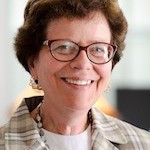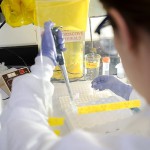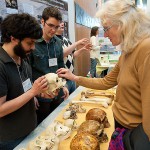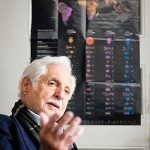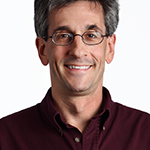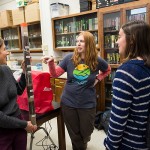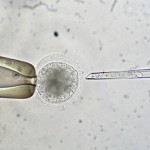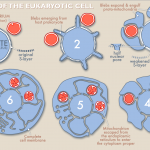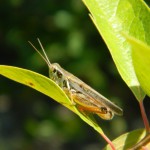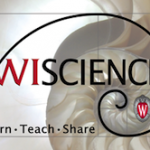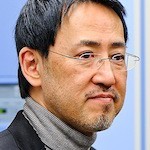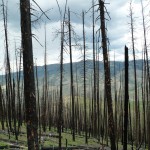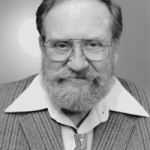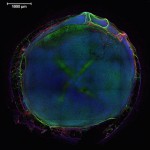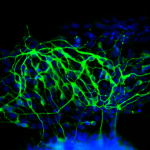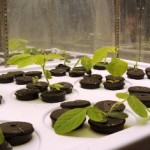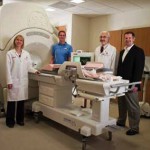Tag Biosciences
Campus push to address crisis in U.S. biomedical research
The growing realization that the American biomedical research enterprise is unsustainable and requires a comprehensive fix will be the subject of a wide-ranging campus conversation to take place over the next few months.
Sidebar: Sessions set to discuss biomedical research crisis
A series of campus-wide discussions to gather feedback and ideas from researchers — faculty, staff scientists, postdocs, and graduate students as well as administrative staff — on what many people believe is a crisis in U.S. biomedical research has been scheduled for March.
Darwin Day celebration focuses on islands, isolation
What do Madagascar and Jurassic Park have in common? Both are island-based evolutionary “experiments” that will be highlighted in this year’s Darwin Day celebrations, sponsored by the J.F. Crow Institute for the Study of Evolution at UW–Madison and its partners. “Darwin Day 2015: Islands and Isolation” will run all day Thursday, Feb. 12, and focus on the unique opportunity that islands provide to witness evolution and the diversity of life.
Chemical dial controls attraction between water-repelling molecules
Abbott, Gellman and a group of University of Wisconsin–Madison researchers have provided new insights on hydrophobic interactions within complex systems. In a study published today in the journal Nature, the researchers show how the nearby presence of polar (water-attracted, or hydrophilic) substances can change the way the nonpolar hydrophobic groups want to stick to each other.
In its first year, BioHouse brings opportunity for students in science
BioHouse is the newest of 10 UW–Madison residential learning communities — clusters of students in residence halls who choose to live with others active in a common interest area — three of which are designed for students interested in science. Focused on biological sciences, BioHouse — in partnership with WISCIENCE and University Housing — opened in fall 2014 with 66 residents.
Neal First, whose work led to cattle cloning, dies at 84
Emeritus Professor Neal First, a pioneer in cattle reproduction and cloning who studied animal physiology at the University of Wisconsin–Madison for 45 years, died Nov. 20 from complications of cancer.
New theory suggests alternate path led to rise of the eukaryotic cell
As a fundamental unit of life, the cell is central to all of biology. Better understanding how complex cells evolved and work promises new revelations in areas as diverse as cancer research and developing new crop plants.
New studies power legacy of UW–Madison mitochondrial research
Dave Pagliarini recently published two studies shedding more light on coenzyme Q and how it’s made, one in the Proceedings of the National Academy of Science (PNAS) in October and another today in Molecular Cell.
Grasshoppers signal slow recovery of post-agricultural woodlands, study finds
New research by Philip Hahn and John Orrock at the University of Wisconsin–Madison on the recovery of South Carolina longleaf pine woodlands once used for cropland shows just how long lasting the legacy of agriculture can be in the recovery of natural places. By comparing grasshoppers found at woodland sites once used for agriculture to similar sites never disturbed by farming, Hahn and Orrock show that despite decades of recovery, the numbers and types of species found in each differ.
WISCIENCE to expand possibilities for science education, outreach
The University of Wisconsin–Madison’s Institute for Biology Education is announcing its expansion to become the Wisconsin Institute for Science Education and Community Engagement, or WISCIENCE. The new mission extends across the natural sciences and expands responsibility for facilitating cross-campus collaboration and coordination in the areas of science outreach and support for groups underrepresented in science.
UW to serve as national hub for mentor training as part of diversity consortium
The University of Wisconsin–Madison will serve as a national hub for research mentor and mentee training for the National Research Mentoring Network (NRMN) recently announced by NIH as part of a national Diversity Program Consortium. The NIH will award the Diversity Program Consortium nearly $31 million in fiscal year 2014 funds to develop new approaches that engage researchers, including those from backgrounds underrepresented in biomedical sciences, and prepare them to thrive in the NIH-funded workforce.
Influenza researcher Yoshihiro Kawaoka wins Breakthrough Award
The University of Wisconsin–Madison's Yoshihiro Kawaoka has been recognized as a 2014 Popular Mechanics Breakthrough Award recipient for his efforts to understand and prevent pandemic influenza.
Mountain pine beetles get a bad rap for wildfires, study says
Mountain pine beetles get a bad rap, and understandably so. The grain-of-rice-sized insects are responsible for killing pine trees over tens of millions of acres in the Western U.S. and Canada over the last decade. But contrary to popular belief, these pests may not be to blame for more severe wildfires like those that have recently swept through the region. Instead, according to a new study by UW–Madison zoology professor Monica Turner, weather and topography play a greater role in the ecological severity of fires than these bark-boring beetles.
In memoriam: Ray D. Owen discovered immune tolerance, paved the way for organ transplantation
Ray D. Owen, who died on Sept. 21 in Pasadena, California, at the age of 98, discovered the phenomenon of immune tolerance, fueling a revolution in immunology and laying the foundation for the successful transplantation of human organs. Owen left Madison in 1947 to join the faculty at Caltech, where he remained for the rest of his long, distinguished career. His later work included studies on human antibodies, blood-group antigens, and the evolution of immune systems.
UW-Madison team developing ‘tissue chip’ to screen neurological toxins
A multidisciplinary team at the University of Wisconsin–Madison and the Morgridge Institute for Research is creating a faster, more affordable way to screen for neural toxins, helping flag chemicals that may harm human development.
In directing stem cells, study shows context matters
In a new study, a team of researchers from the University of Wisconsin–Madison has added a new wrinkle to the cell differentiation equation, showing that the stiffness of the surfaces on which stem cells are grown can exert a profound influence on cell fate.
A touching story: The ancient conversation between plants, fungi and bacteria
The mechanical force that a single fungal cell or bacterial colony exerts on a plant cell may seem vanishingly small, but it plays a heavy role in setting up some of the most fundamental symbiotic relationships in biology. In fact, it may not be too much of a stretch to say that plants may have never moved onto land without the ability to respond to the touch of beneficial fungi, according to a new study led by Jean-Michel Ané, a professor of agronomy at the University of Wisconsin–Madison.
University spinoff aims to hit the mark precisely with brain-scanning tool
As brain surgeons test new procedures and drugs to treat conditions ranging from psychiatric disorders to brain cancer, accuracy is becoming an ever-greater issue.

